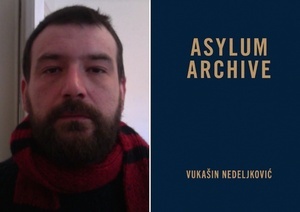Life On The Outside
A radio documentary by Bairbre Flood looking at the lives of three women who have survived Direct Provision.
Bairbre writes:
For my latest documentary I talked to three women; Elsie Nwaora, Nomaxabiso Maye and Florence Eriamantoe who lived for years in Direct Provision.
This was the system set up almost 20 years ago to provide accomodation and meals to asylum seekers while their claim is being processed. Intended to be a short-term solution, it seems to have created even more long-term problems.
The lack of access to cooking facilities, the overcrowding (Florence lived in one room with her family for more than six years), the lack of privacy and the strain this puts on family dynamics are all obvious: but perhaps what’s less tangible is the subtle loss of dignity and self-direction that Direct Provision incurs. ‘You have no autonomy’ as Nomaxabiso puts it. Everything is done for you. Who wants to live like that?
Most Direct Provision centres are situated in isolated areas, and Noma recalls how the place she was sent to, Drishane Castle, County Cork was ‘spooky’.
Noma says:
‘It’s a very old castle. It looks beautiful from the outside. It’s very hidden away from the local community – you know, that separateness of people: that this is the local community and these are asylum seekers.’
They’d almost no contact with the locals there. ‘It was very rare you’d see people interacting with Drishane residents.’ Noma said.
I put it to Noma that it’s hard for Irish people to get to know people in Direct Provision as we usually meet people through work and college, and she agrees that ‘this is where the trick is.’
She adds:
‘If you allow people to participate in those things (college, work,) then you allow people to get to know each other. I met a lot of friends through college – had I been in Direct Provision sitting there, there’s no way I’d have.’
Florence and Elsie also described how isolated they felt from the wider community and Elsie noted,
Florence says:
‘The way it is, people didn’t know…that place there is the hostel, the Direct Provision centre; people didn’t know about it.”
This physical isolation isn’t helped by the fact that none of the women were allowed work during their time in Direct Provision. (Although there is a limited possibility for this now following a Supreme Court decision earlier this year, none of the women would have qualified as their cases were under appeal.)
‘You weren’t able to do anything’, Florence said. Boredom and anxiety wear away at the body and mind and the effect on the physical and mental health of people in Direct Provision can be devastating.
Noma says:
‘I won’t lie, I went through this myself and I didn’t see it happening, it was just the little things. I don’t have sleep, no appetite, this and that…and this is what the government is failing to understand because it’s costing the state more to keep people in that way.’
‘I started blaming myself and feeling like a failure, ending up in a place like that.’
Nomaxabiso managed to get on a course, however she says:
‘Somebody else did not have that opportunity that I had and people just fell into depression. They fell deep into depression. I could tell you horrible, horrible stories and people with young children, most of them would lose their children to social services…they couldn’t look after their children because they were depressed.’
Nomaxabiso is just graduating from her degree in social work this year and says that she would like to work with migrants because she understands where people come from, ‘people come with various challenges from various backgrounds.’
Florence too is studying social work in UCC, and both women hope to bring their experiences to help families in the future.
One of the most distressing parts of being an asylum seeker is the threat of deportation which hangs over you. All three women spoke about deportation being the worst aspect of their lives.
Florence described how immigration officials would come in the middle of the night to take people away.
She recalls:
‘They would have their cars and staff members surrounding the buildings…There was this woman we had to hide in the wardrobe with her kids. I’ve never seen anything like that. Those kids were the kind of kids that are very active, but for the first time in my life I saw kids that were quiet. That’s when it dawned on me that the kids knew everything that was happening. It was horrible.’
Florence’s husband was deported, but she was allowed stay while her children’s case was being heard through the courts.
Florence says:
‘I know ten to fifteen women, their husbands were deported and their family has been destroyed.’
All three women spent years trying to rebuild their lives after getting their papers and moving into the wider community. The sudden switch from years of institutional living isn’t easy.
Elsiedescribes how her daughter was six years old when they finally got their papers. Having never lived anywhere other than the Hostel, her daughter couldn’t get used to a house away from the friends she’d grown up living with
: ‘She’d always say, ‘Mum, I don’t want to stay here, let’s go back to the Hostel…maybe if she didn’t spend six years in the Hostel and she just grew up in the house she will just see that is normal.’
Largely hidden away from Irish society, people in Direct Provision rarely have their voices heard, and there’s much we can learn from these women’s experiences.
Bairbre Flood: Life On The Outside (Soundcloud)
Pic: 255 Photography







Claims should be processed in 3 months.
Tell that to the African nations not providing the necessary documentation and information.
@ ReproBertie
I sure will tell them. expecting an e mail from Nigeria this afternoon with some good news regarding a certain 20 million payment I’m due.
“Florence’s husband was deported, but she was allowed stay while her children’s case was being heard through the courts.”
So, her husband’s claim for asylum was found to be baseless (I presume this would also apply to her claim, also). I feel very bad for the children that their parents’ actions have put them in what must be a very stressful situation.
“…survived direct provision ”
Portraying it as if it were a concentration camp. Ridiculous.
@ Dr_Chimp: In fairness, most of Cork is like Gitmo with lashings of Tanora and drisheen.
It’s basically a prison. I’m sure you’d love it yourself
Those hand prints are ENORMOUS.
My thought exactly
Not to take away from the utter shamefullness of the ongoing issue
Absolutely.
“…………looking at the lives of three women who have survived Direct Provision.”
Wonderful use of the verb survived. Makes it sound like Buchenwald from the off.
People spend years in this system because of the endless legal gravy train. Another farce at the expense of the taxpayer.